Building date: 1847, National Registry of Historic Places states 1851
Original use: Tavern
Corner structures:
Mortar application and content: Vertical, no embellishment
Types and uses of stones:
Types and choice of windows: Gray cut stone lentils in back of structure
Structures with similar masonry details:
Masons who worked on building:
Unique features:
Map views courtesy Google Maps. Address is Google Earth confirmed; 42°53'20.69"N 75°33'05.51"W. Current owner of record, Hengst as of date (YMD) 190420.
Town of Madison and Madison County Maps
Cobblestone Masterpiece, A History of the Landmark Tavern Building, by James Ford 2016 (jnford47@gmail.com), Madison County Historical Society.
Rome Sentinel, July 20, 1940
Bouckville Man Buys Landmark Robert Palmiter Takes Over Old Cobblestone Store On Route 20
Oneida - Robert Palmiter is the new owner of the old cobblestone store at Bouckville, Route 20.
The octagonal building was built by Moses Maynard who came from New England to Bouckville in 1800. He built the building 40 years later and during the Chenango Canal and hop-picking days it was a noted meeting place. Maynard also built what is now known as the "White House Hotel."
After its completion 10 years later, Ira Burham and his son, Linidorf, operated the store, but upon the outbreak of the Civil War, the Burnhams disposed of their business to Deacon William Coolidge, who operated the store until 1875. He also was postmaster.
Lewis E. Coe was his successor and the Coes owned the property for 64 years. H.D. Brockett became his partner later. Mr. Coe died in 1897, and Brockett carried on until 1911. Charles M. Coe, a son of Lewis, bought Brockett's interest and A.F. White became manager. Later he was succeeded by Mrs. J.M. Daniels.
Among other buildings of the community during the Cobblestone Store construction was the cobblestone house now occupied by Glenn Washburn, supervisor, and the red brick house, occupied by Mrs. Elsie Washburn.
Cobblestone Store is Being Restored, Thursday, July 25, 1940
Octagonal Stone Store Located At Bouckville is of Historical Interest - Will Be Used for Antique Shop ¹
The recent sale of the "Old Cobblestone Store" at Bouckville Corners is of interest throughout Central New York, not only because of its unique appearance but because of its historical interest. An item on the history of the Cobblestone Stone appeared in the Oneida Democratic-Union last week. The article follows:
Moses Maynard and family came from the east early in 1800, and settled in the vicinity of Bouckville. About 1840 he built the present hotel known as 'White House.' About 1850, he built the cobblestone store. Mr. Maynard was the chief instigator. Mrs. Maynard, commonly called 'Aunt Polly' made the remark that if it could be built eight sided, they would help finance the building. "Ira Burham and son, Linidorf operated the store until the opening of the Civil War in 1861. Deacon William Coolidge succeeded the Messrs. Burnhams and continued until his death in 1875. He was also postmaster and the post office was in the store.Purchased in 1876
Lewis E. Coe purchased the building in 1876 and he operated it for several years as well as being postmaster. Later he took into partnership, H.D. Brockett. The firm was then known as Coe & Brockett. After Mr. Coe's death in 1897, Mr. Brockett carried on alone until 1911. Then Charles M. Coe, son of Lewis T. Coe, purchased the property.
A.F. White was manager for a number of years. Mr. White was succeeded by Mrs. J.M. Daniels who ably filled the position. Mr. Brockett continued as postmaster, moving the post office into what is known now as the Pierce Auto Parts.
The store was owned by the Coe family for 64 years. During that time it as operated as a general store. The stock tried, consisting of nearly everything from peanuts, needles and silk to mowing machines. It was also a very popular place when the old canal boats operated on the Chenango Canal.
In hop times, it was the scene of great activity, the farmers bills sometimes amounting to hundreds of dollars. It also housed the post office for many years and was also the first local telephone exchange. At one time, from its cupola, weather signals were displayed for the benefit of the farmers.Octagonal in Shape
The building is octagonal, unique in design, containing a dark room. The original double doors with the pulley from the third floor, in the back, were where the molasses and vinegar barrels were hoisted up. Many genial clerks, too numerous to mention by name, have served the public over the counters of this store.
After Mr. Brackett left the store, he continued on as postmaster of Bouckville, moving the post office into what is now known as the Pierce auto used parts, until his death on January 14, 1934.
About the same time the Cobblestone store was built, the cobblestone house now occupied by Glen Washburn and the red brick house, occupied by Mrs. Elsie Washburn, were also erected.
In its last change of hands, early in 1940, Robert Palmiter purchased the property and has remodeled it so far as possible to its original style. He will use it as an antique store. Among other restorations are some of the original doors and windows and the cupola.
¹ Article from the Cobblestone Museum archives. Attribution not provided.
"The Cobblestone Houses of Upstate New York", compiled by Dorothy Wells Pease. Research done in collaboration with Hazed B. Jeffery, supplemented with material furnished by Carl F. Schmidt, 1942. Reference the fourteenth paragraph on page 41, continued on first paragraph page 42.
"Cobblestone Architecture in the Rochester Area", by Gerda Peterich, 1953. Reference Polygonal Block and figure 50. Editor's Note: This digitized version of the original typescript manuscript is reformatted for digital display, edited for errors, and includes blue tinted highlighted links to improve access within the document, to the appropriate structure pages in the Cobblestone Info Base, or to external resources on the internet. This document is one of two known typescript drafts, likely a thesis or essay bound as a book and apparently never published. One is available in the Cobblestone Museum Resource Center, the other in the University of Rochester Art and Music Library. A companion or precursor typed paper of the same title exists, perhaps used for a talk and/or photographic display of cobblestone structures.
"History of the Landmark Tavern in Bouckville", Information collected by James Ford. Editor's Note: James Ford later in 2016 completed a more detailed, in depth history of the Landmark Tavern cobblestone structure, "Cobblestone Masterpiece" - see above.
Ye Old Landmark Tavern Publication, Unusual Octagon, by Wallace Hamilton Cawphee, Historic Central New York, published attribution not provided.
"Mid-York Memoranda", Mid-York Weekly, Hamilton, N.Y., 01/21/1965.
"History Chips", by Marshall Hope, Oneida Daily Dispatch, 5/12/1965. See paragraph 3 under heading "Octagon House".
"The Geological Origin of Cobblestone Architecture", by Gerda Peterich. Specific reference to this structure on page 13.
Excerpt from thesis "Nineteenth Century Cobblestone Structures in Madison County, New York", by Ruthanne Mills, 1972. Titled as Bouckville Store.
How the Walls of Cobblestone Houses were Constructed, prepared by W. M. Houghton 1978.
Two circa 1900 photographs of the "Old Stone Store" (Landmark Tavern) with captions. Images of America, Madison and Hamilton, by Mishell Kyle Forward-Magnusson, Page 18, Arcadia Publishing 2012.
|
- "Cobblestone Masonry", 1966, Carl Schmidt: Name reference, Colidge - Palmiter Store
- Pages 37 - 38
- "Cobblestone Landmarks of New York State", 1978, by Olaf William Shelgren, Jr., Cary Lattin, and Robert W. Frasch, Photographs by Gerda Peterich: Name reference, Coolidge Building
- Pages 154 - 155
- "The Era of Cobblestone Architecture", unpublished manuscript 1972. To access the manuscript content about this structure, see 22. Madison County, Coolidge-Hengst Building.
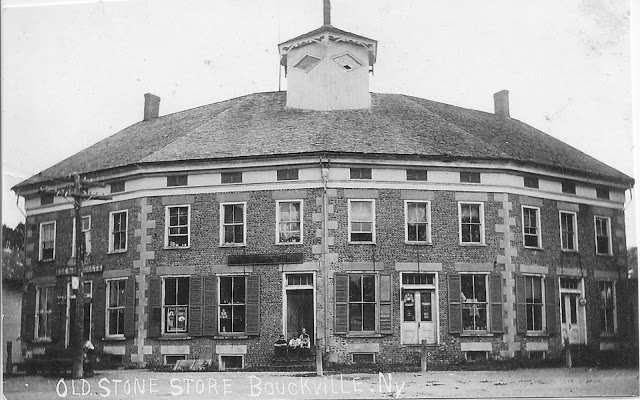 Old Stone Store Landmark Tavern.jpg ¹ | 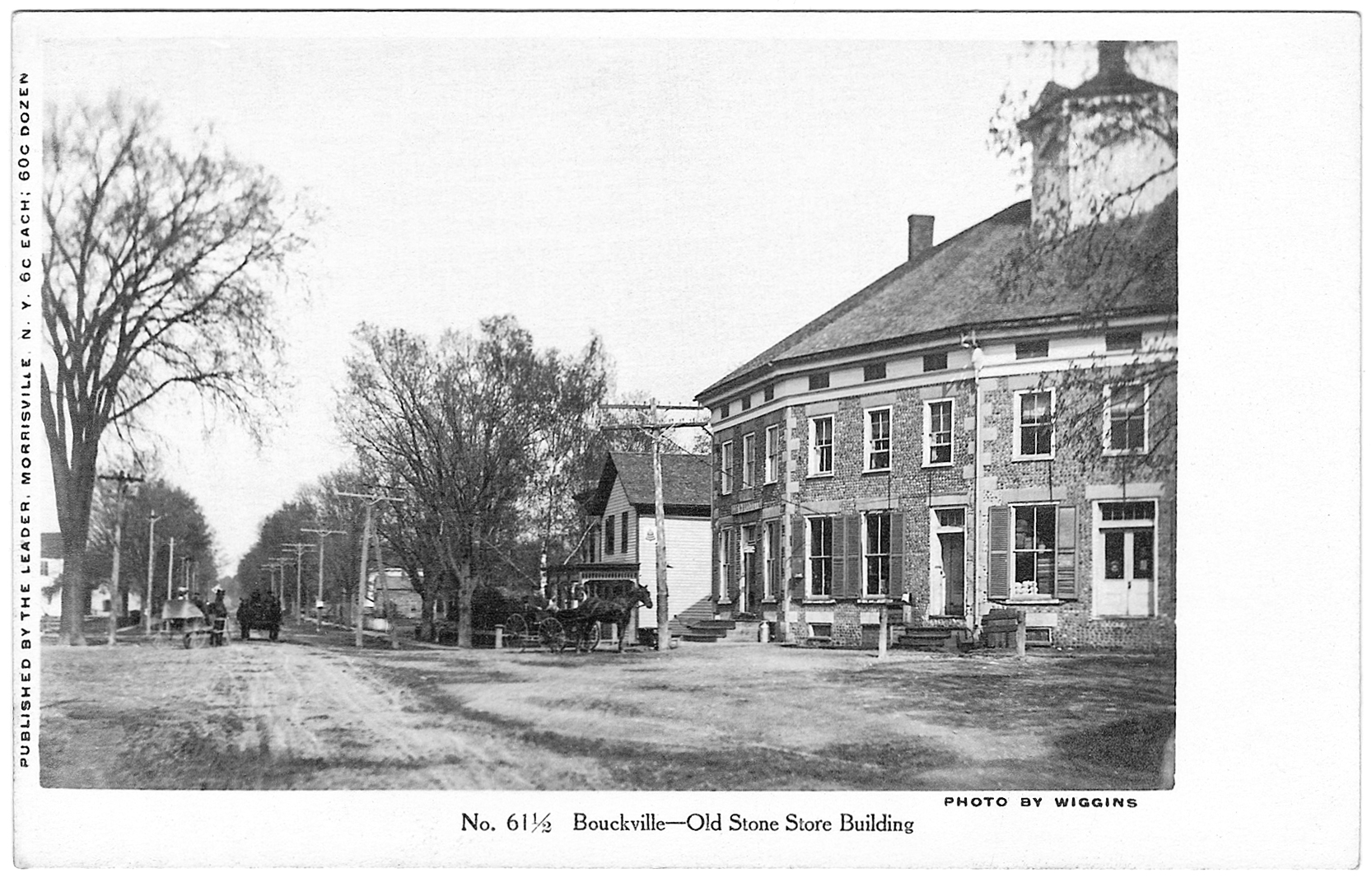 Bouckville_landmark Final MAD-3.jpg ² Postcard photographed by Wiggins and published by The Leader newspaper, both of Morrisville, NY. | 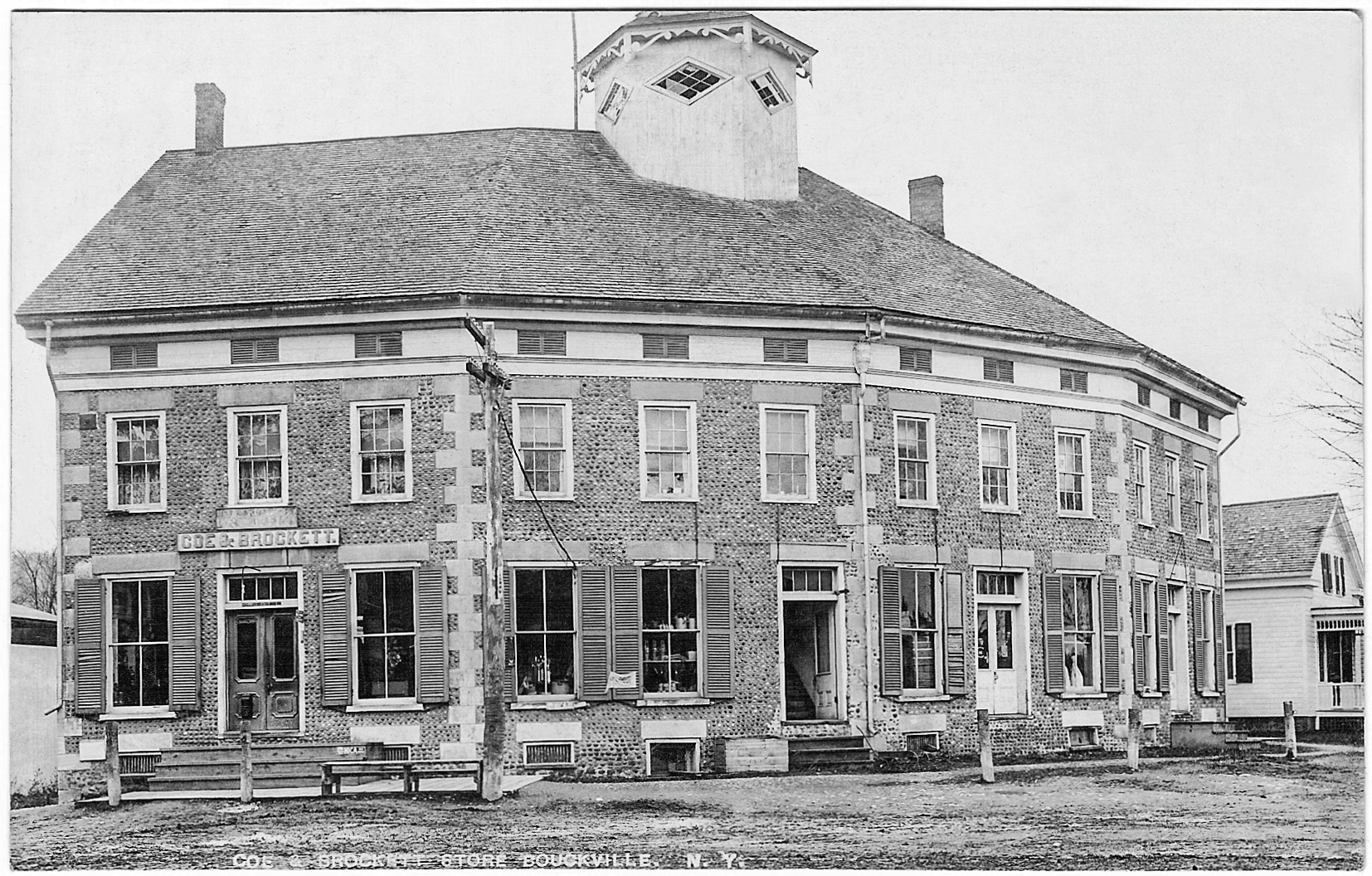 Bouckville_Coe_Brockett Store MAD-3.jpg ² Postcard photographed by C. A. Stringer, Munnsville, NY. | 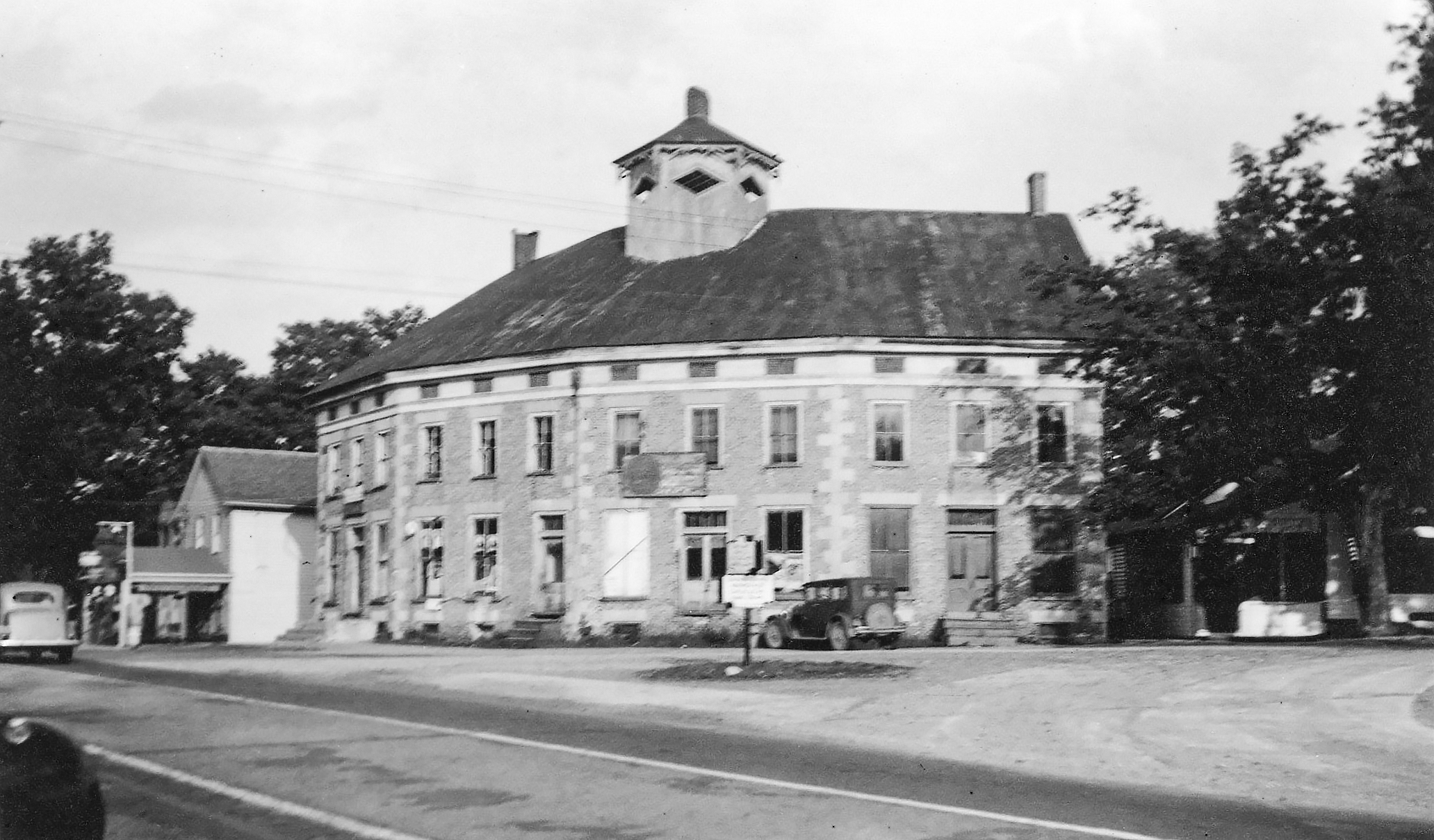 Mad-3 Landmark Tavern 1.jpg ³ August 1936 |
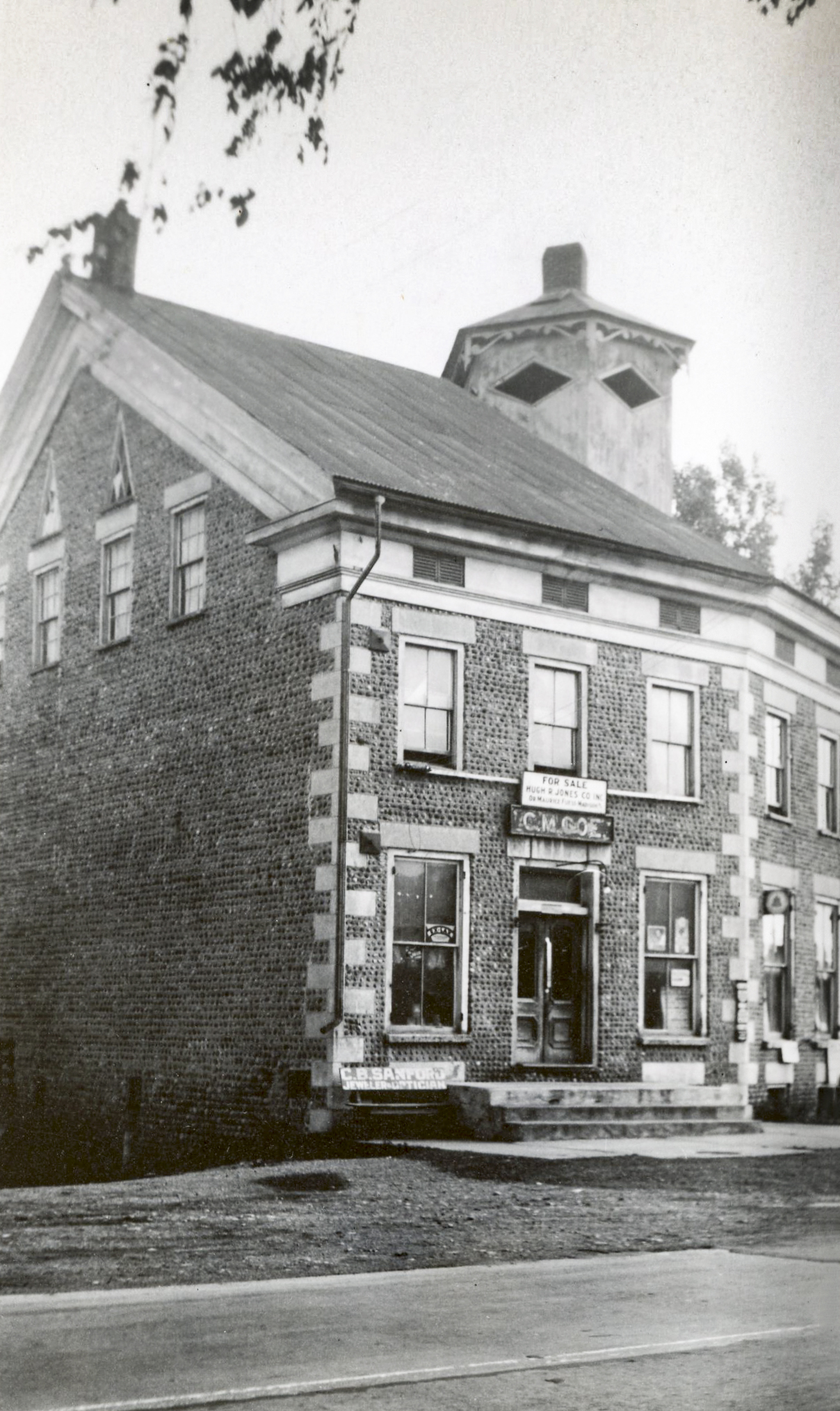 Mad-3 Landmark Tavern 2.jpg ³ August 1936 | 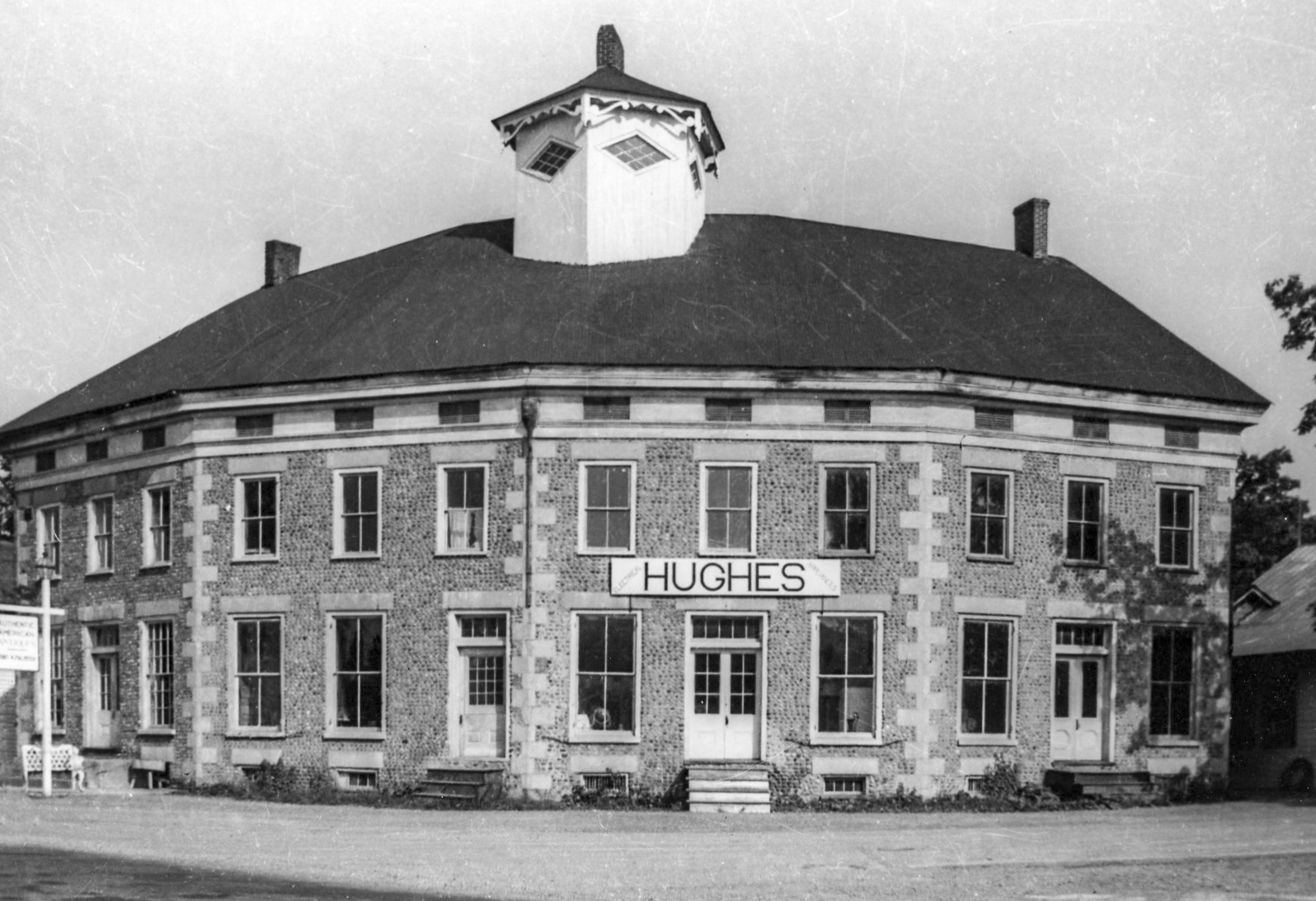 Mad-3 Landmark Tavern 3.jpg 4 Pease Collection 1940-41 | 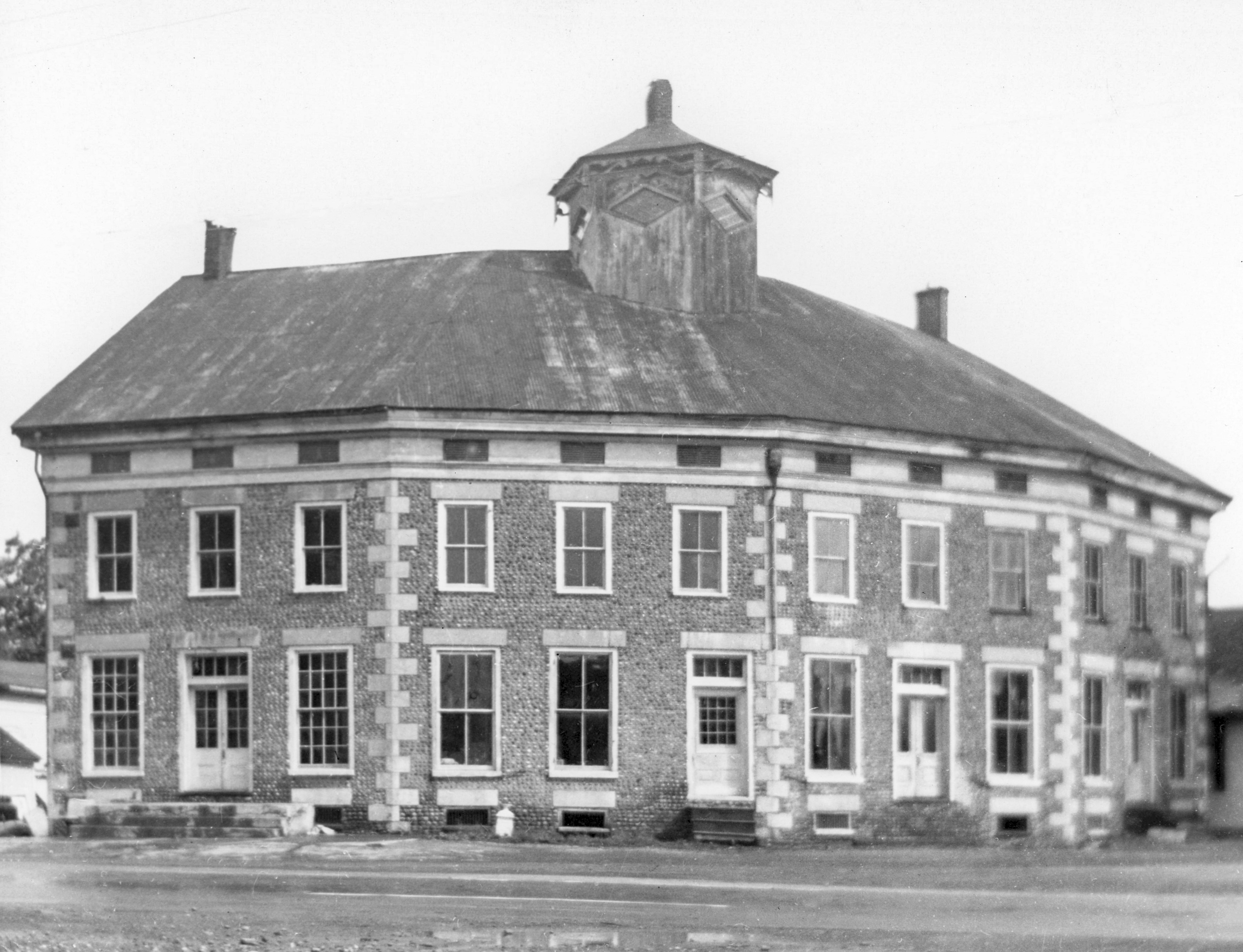 Mad-3 Landmark Tavern 5.jpg 5 1947 | 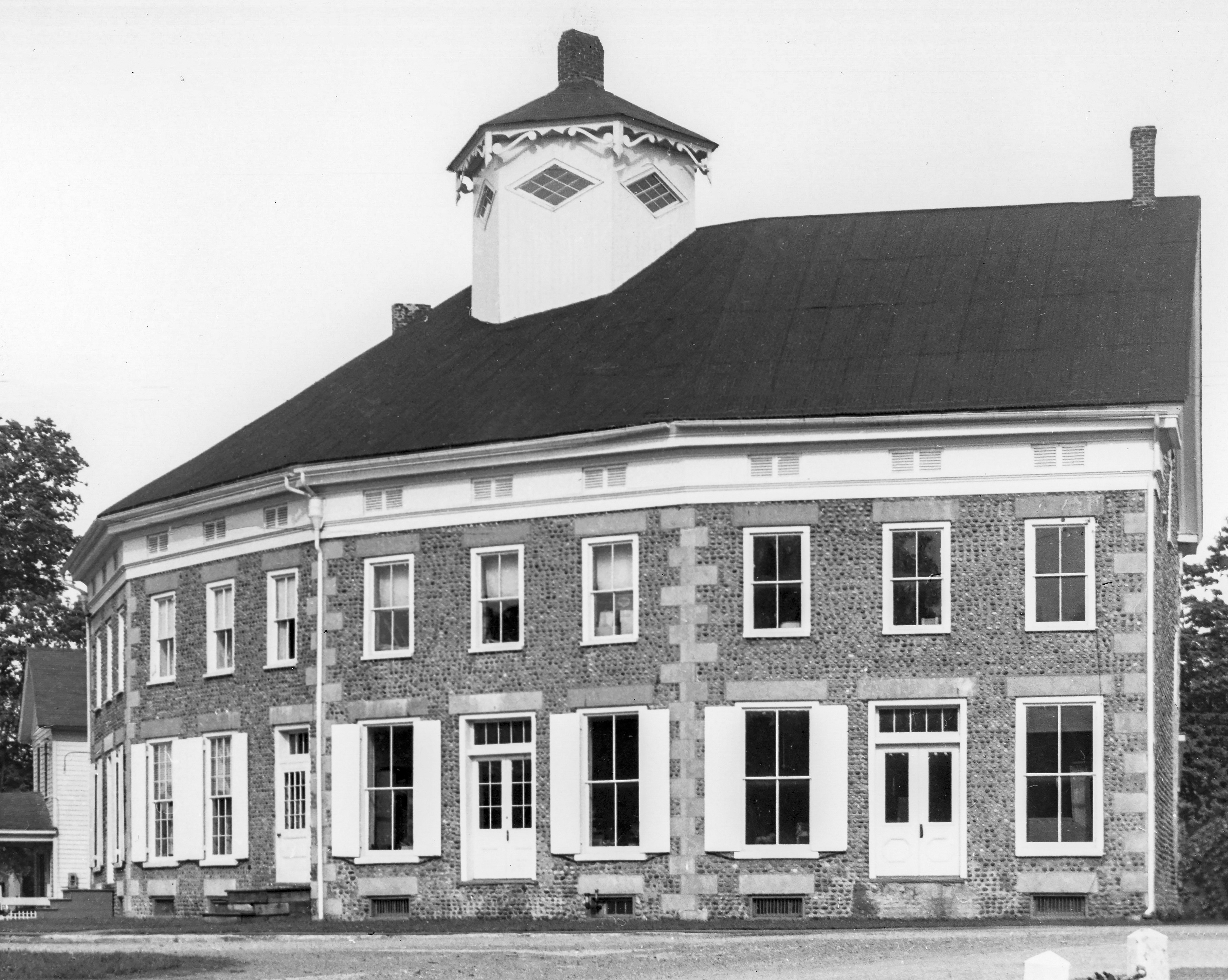 Mad-3 Landmark Tavern 6.jpg 5 1947 |
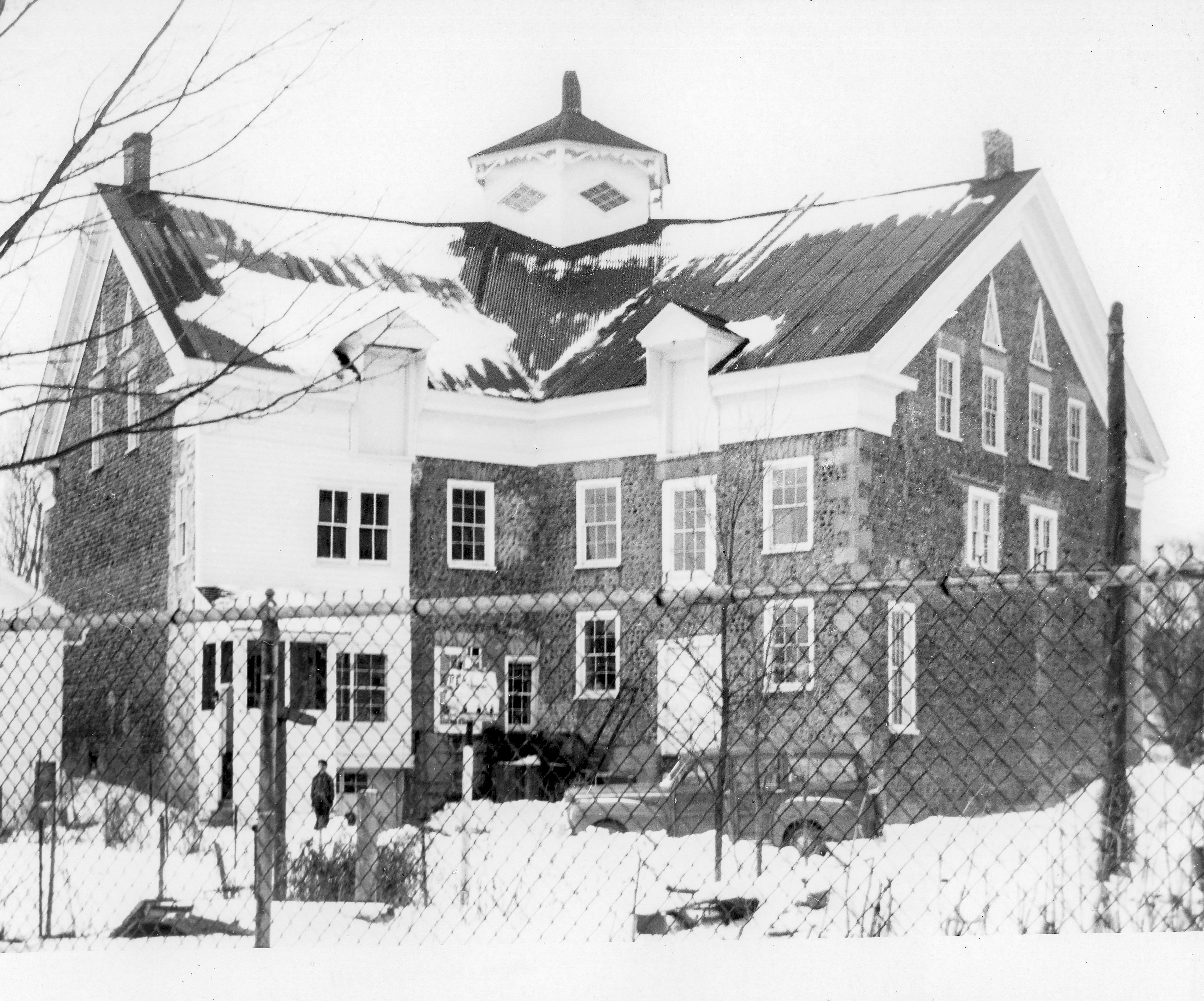 Mad-3 Landmark Tavern 7.jpg 5 1947 | 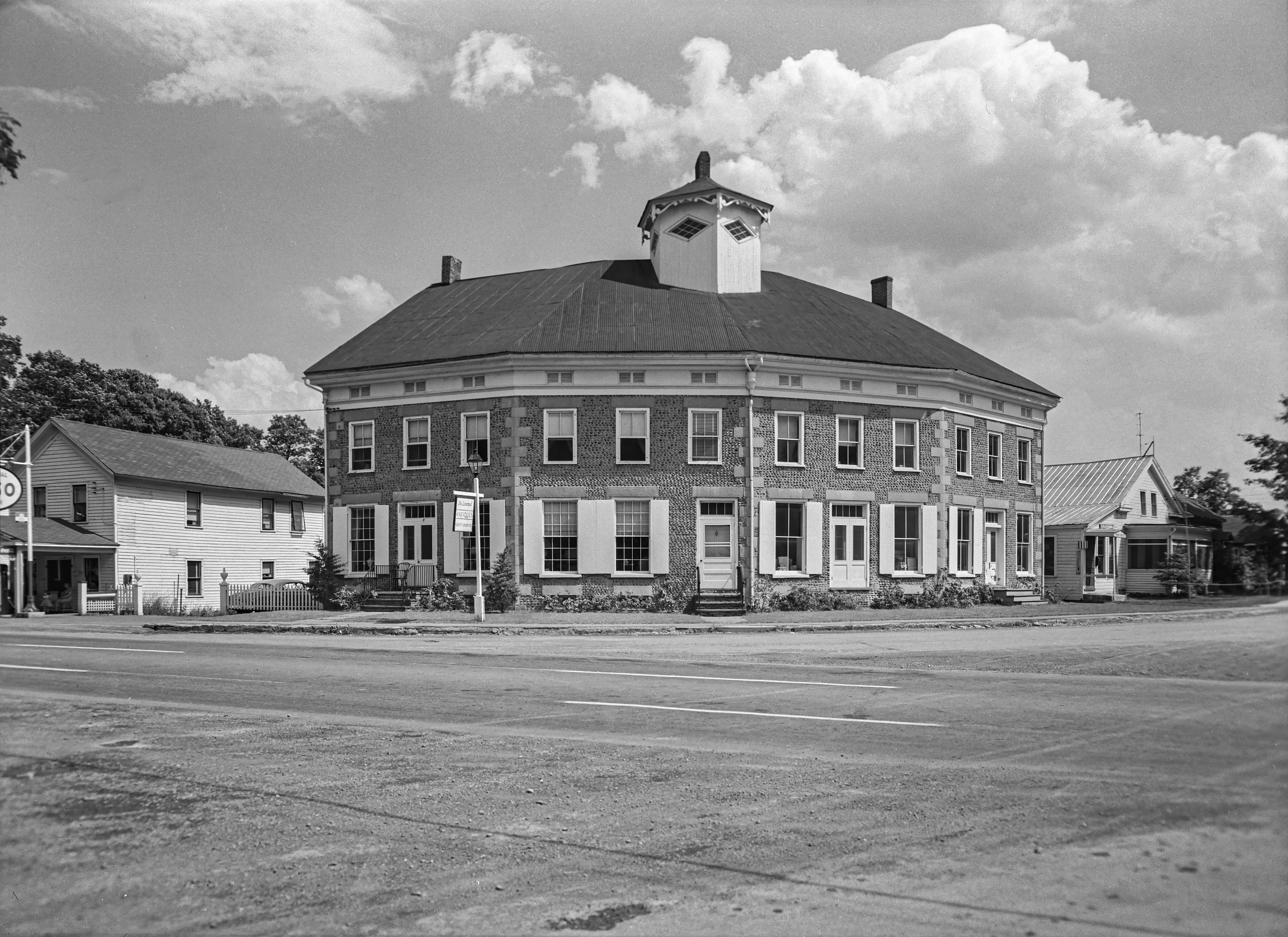 GP Madison Madison Mad-3 2_1 N.jpg 6 c. later 1950s. | 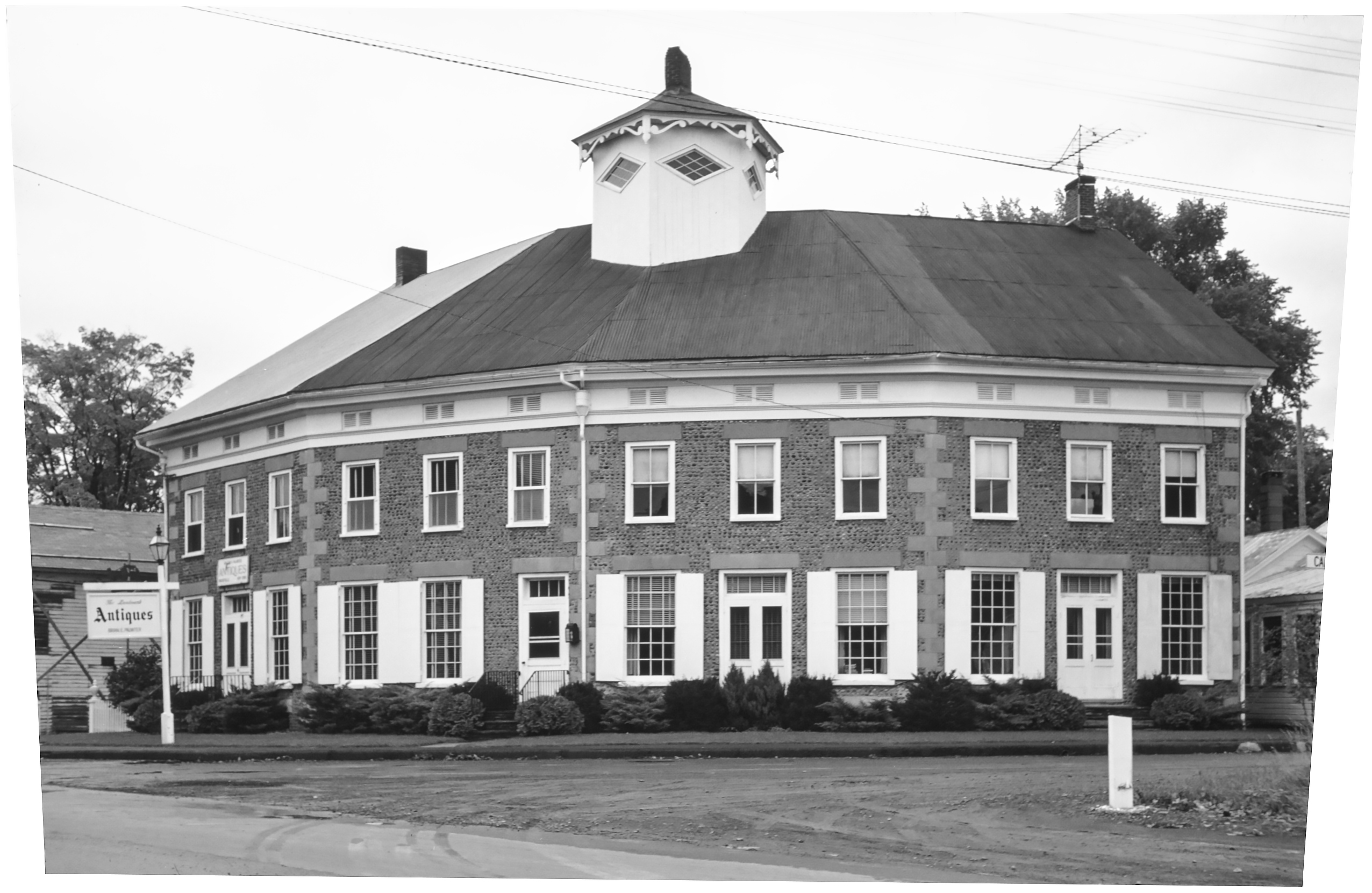 GP Madison Madison Mad-3_1 N.jpg 6 | 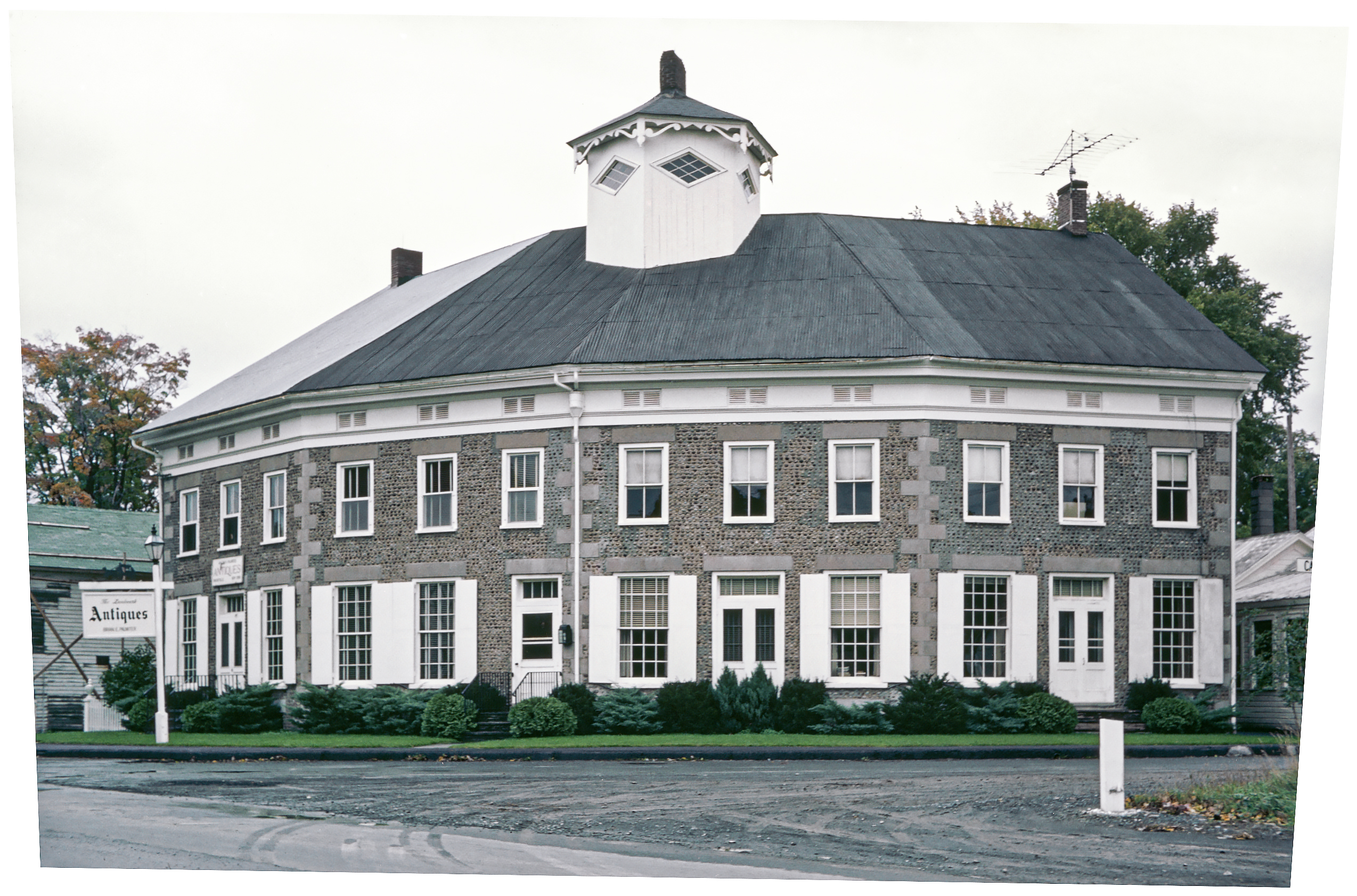 GP Madison Madison Mad-3 4_1 N.jpg 6 |
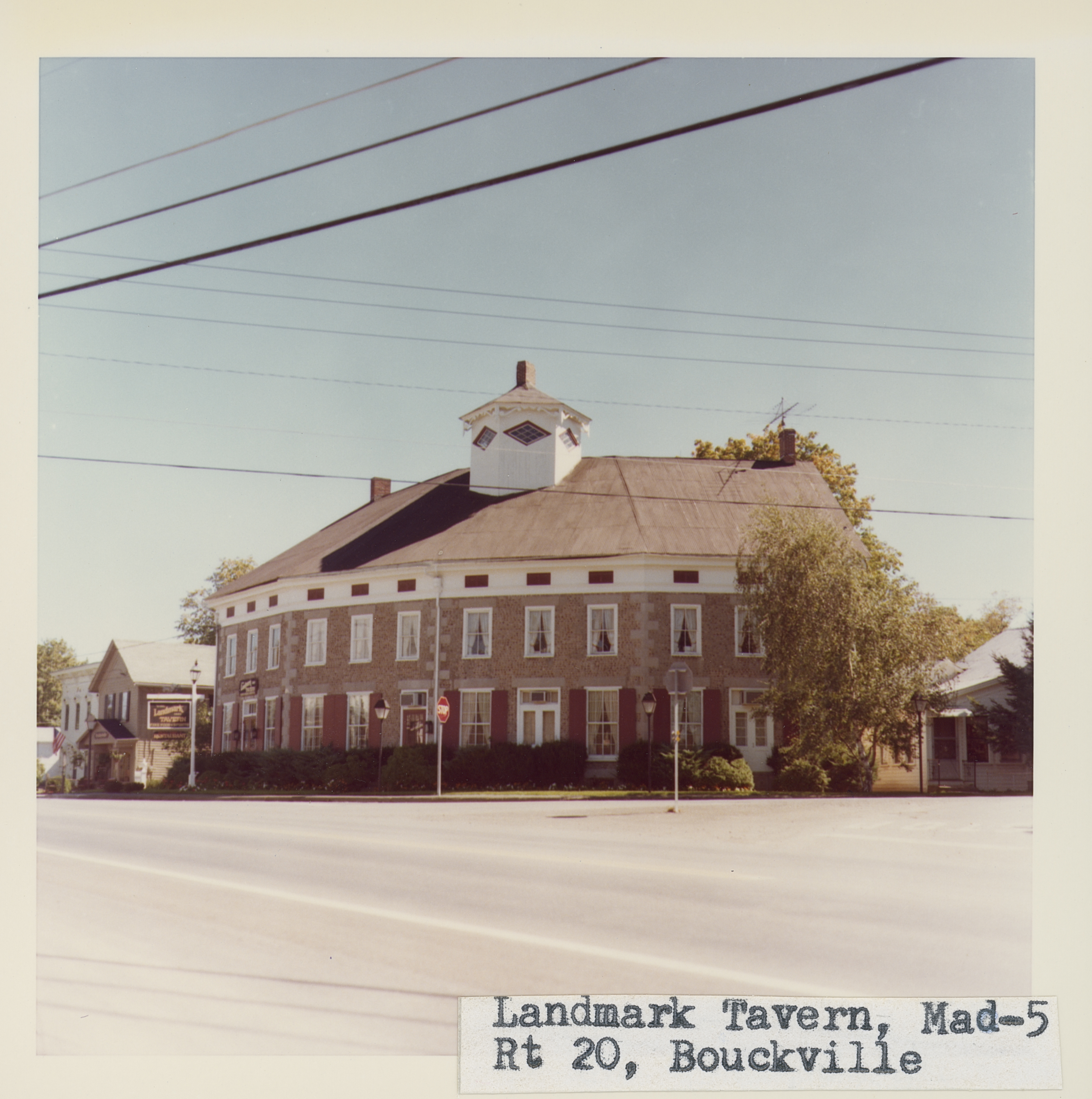 Mad_3_1.jpg | 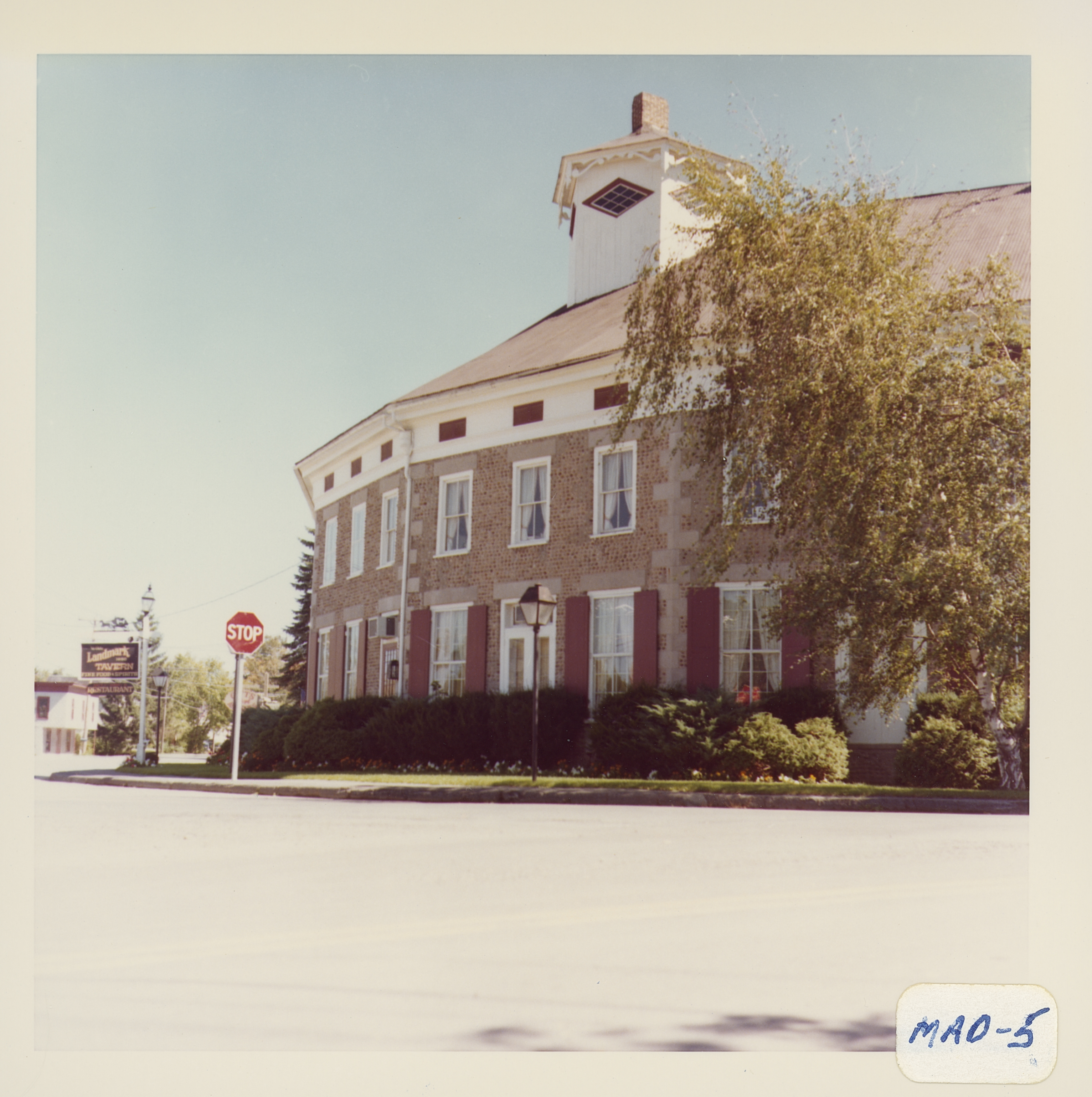 Mad_3_2.jpg | 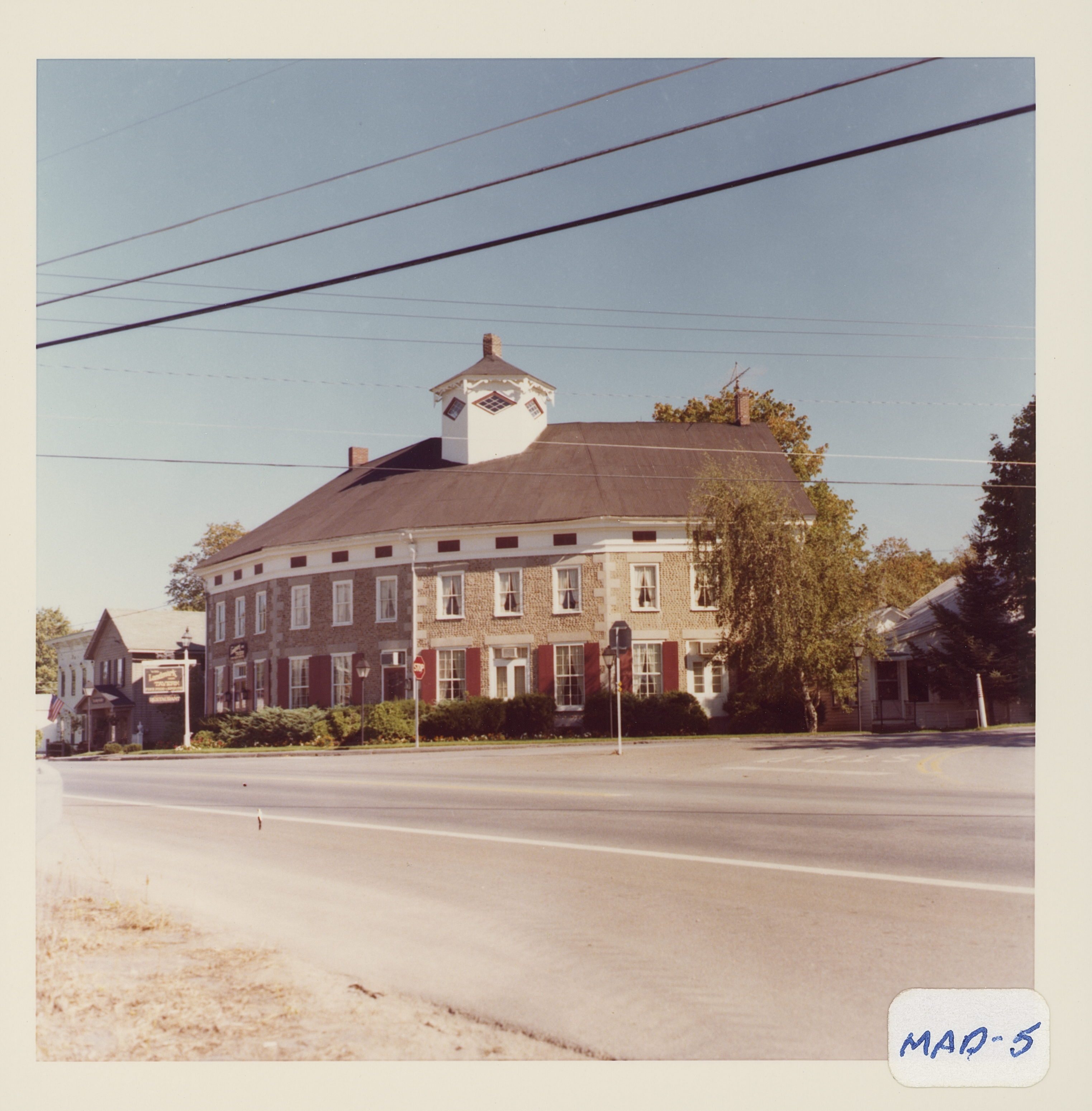 Mad_3_3.jpg | 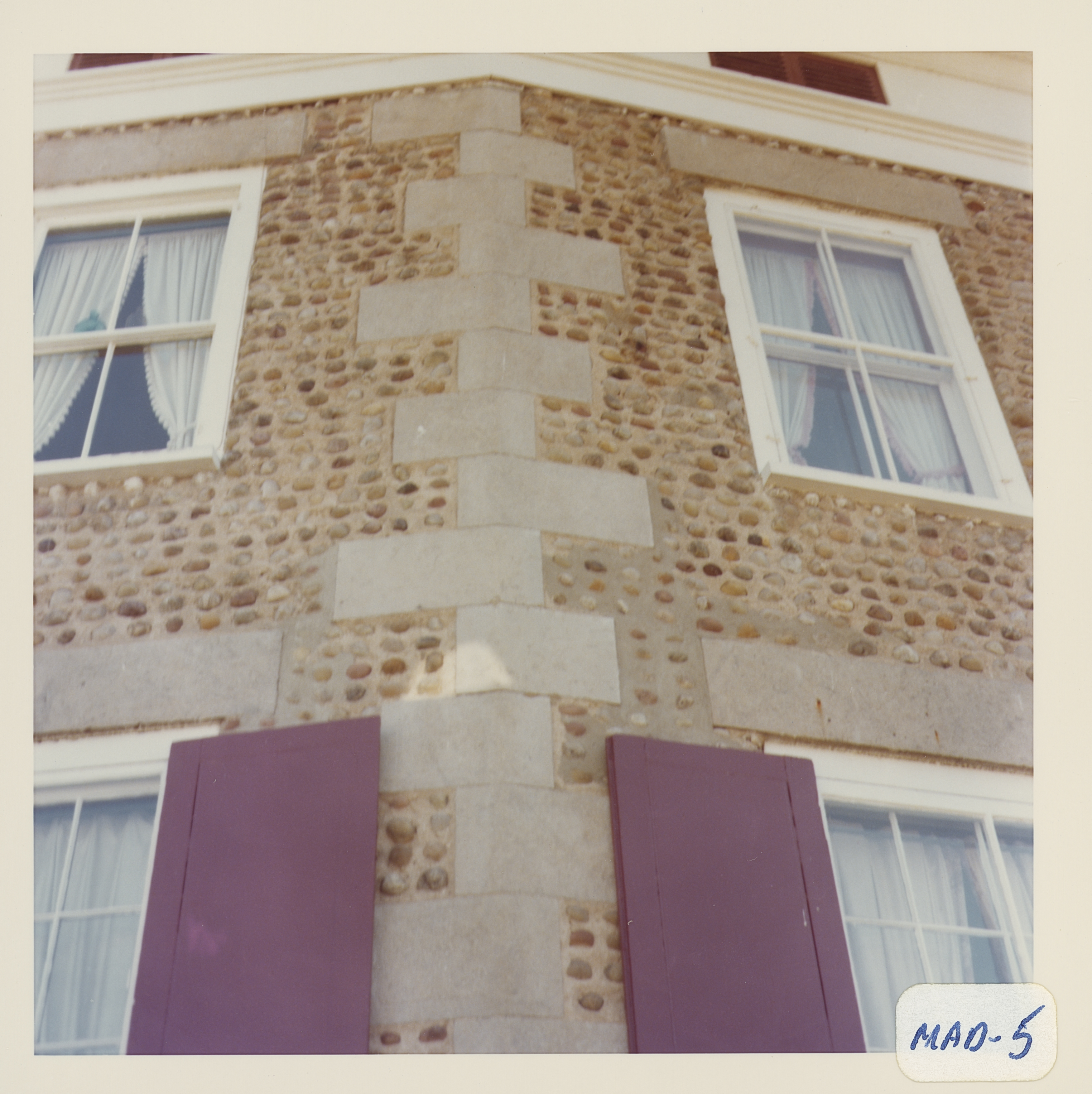 Mad_3_4.jpg |
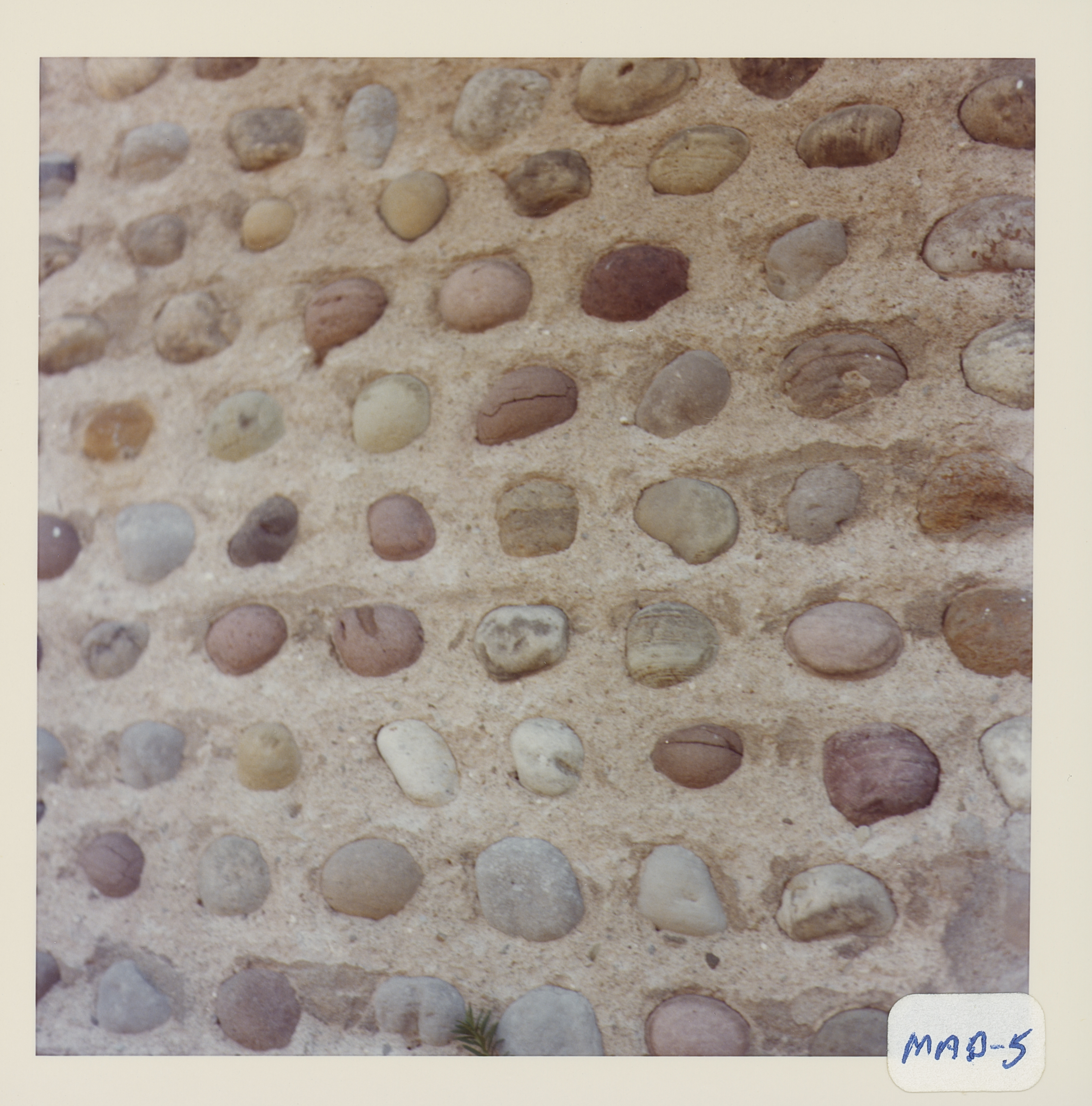 Mad_3_5.jpg | 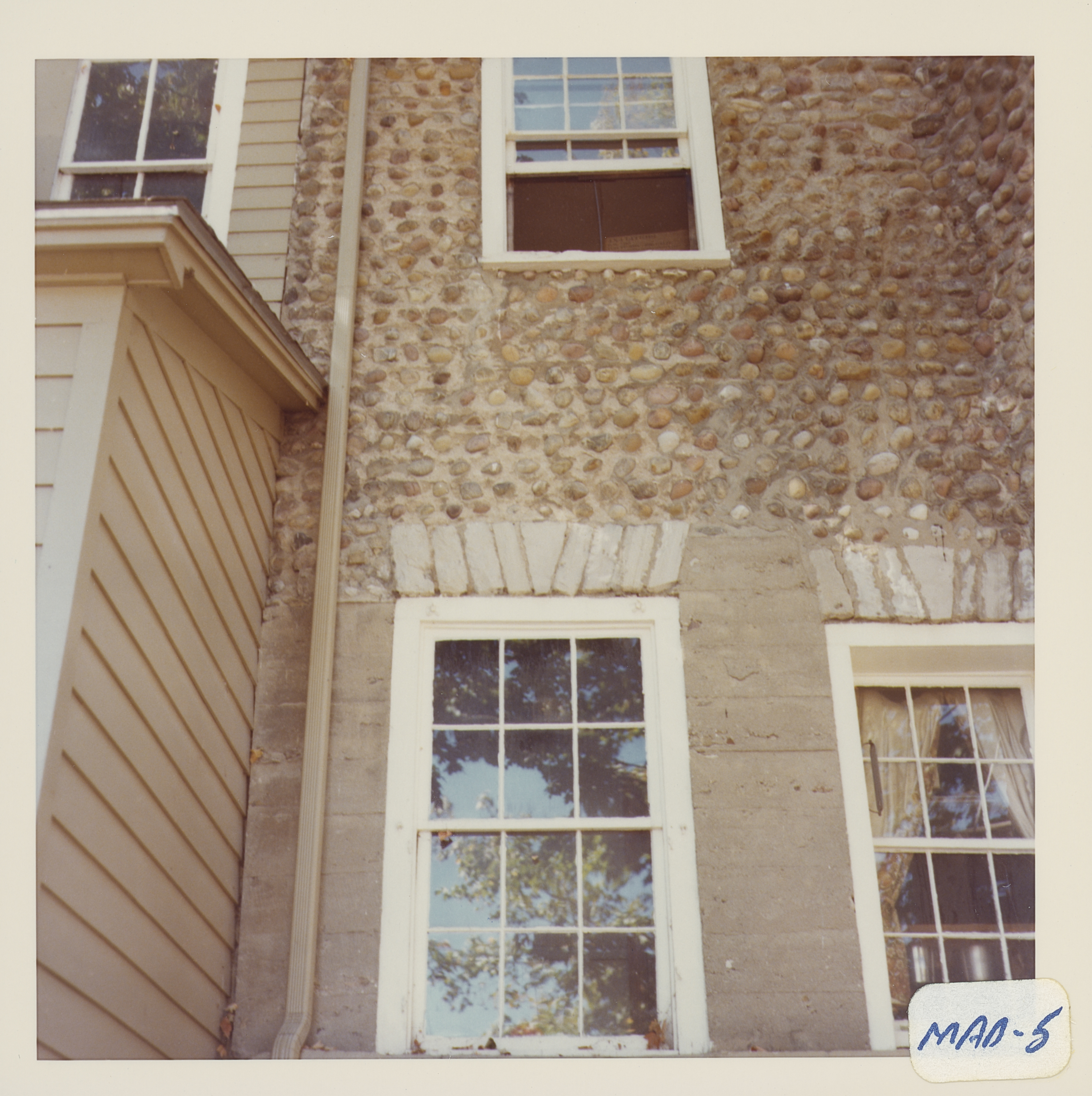 Mad_3_6.jpg | 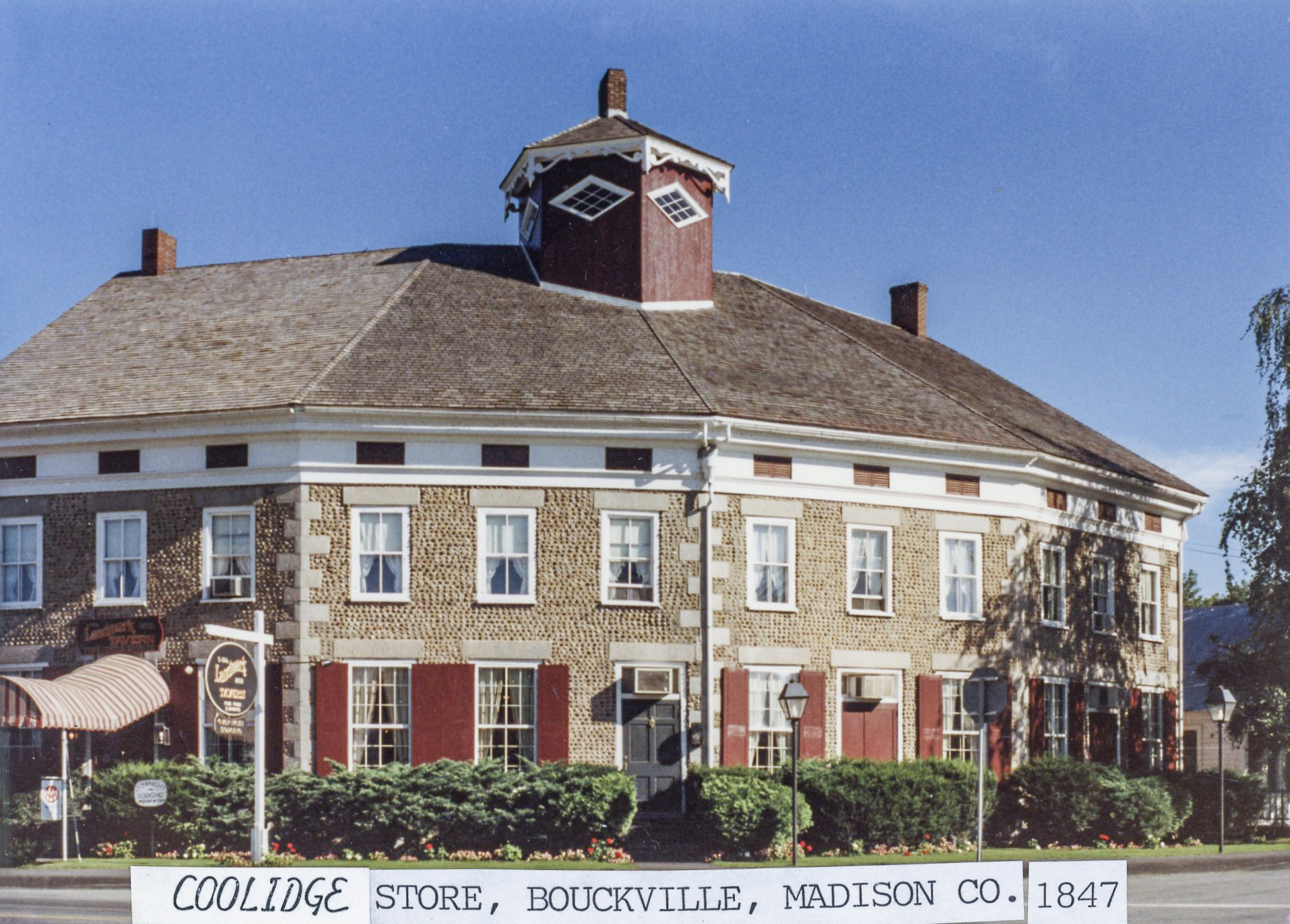 Mad-3 Landmark Tavern 4.jpg 4 | 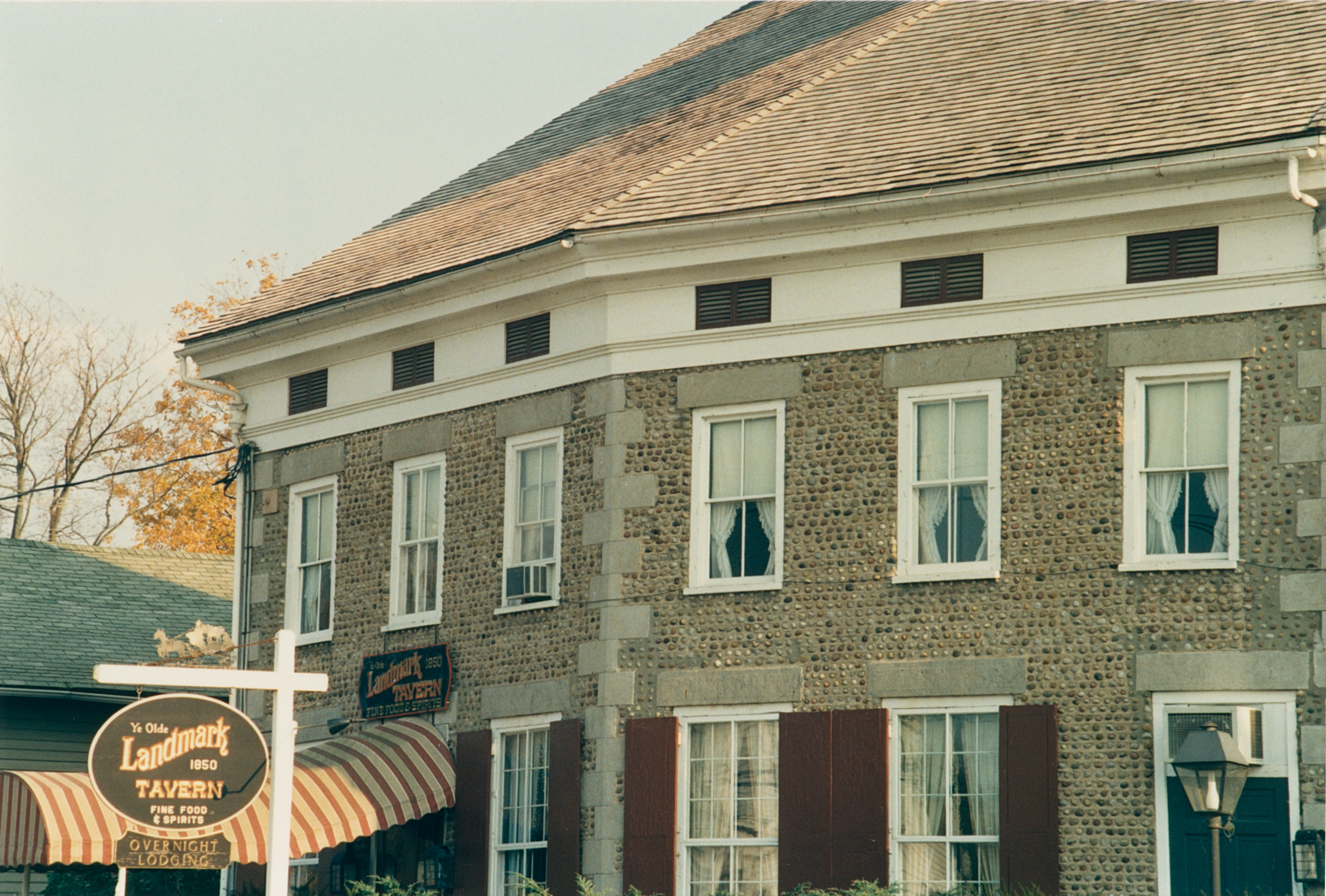 Mad-3 6722 Rt 20 1.jpg 7 |
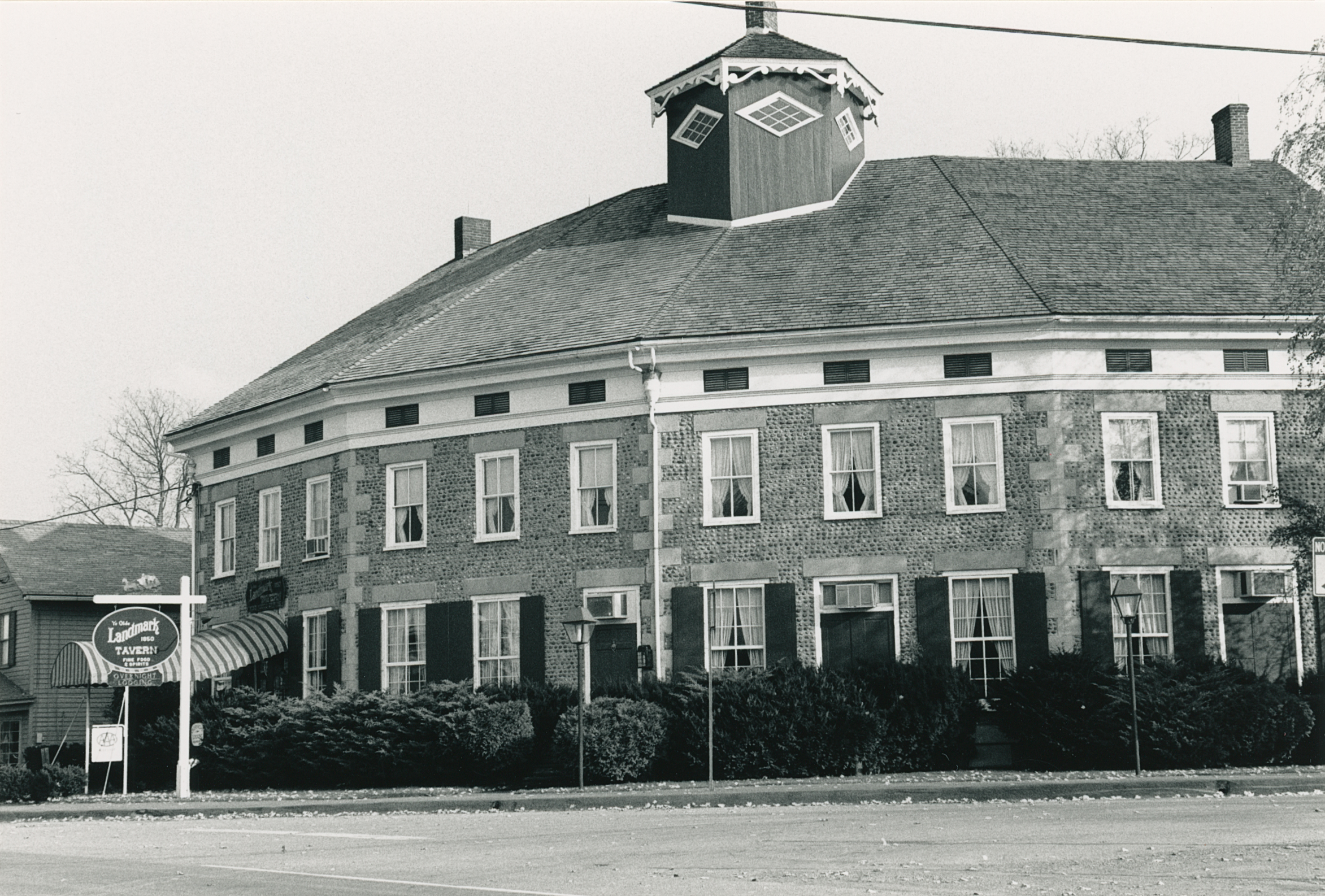 Mad-3 6722 Rt 20 2.jpg 7 | 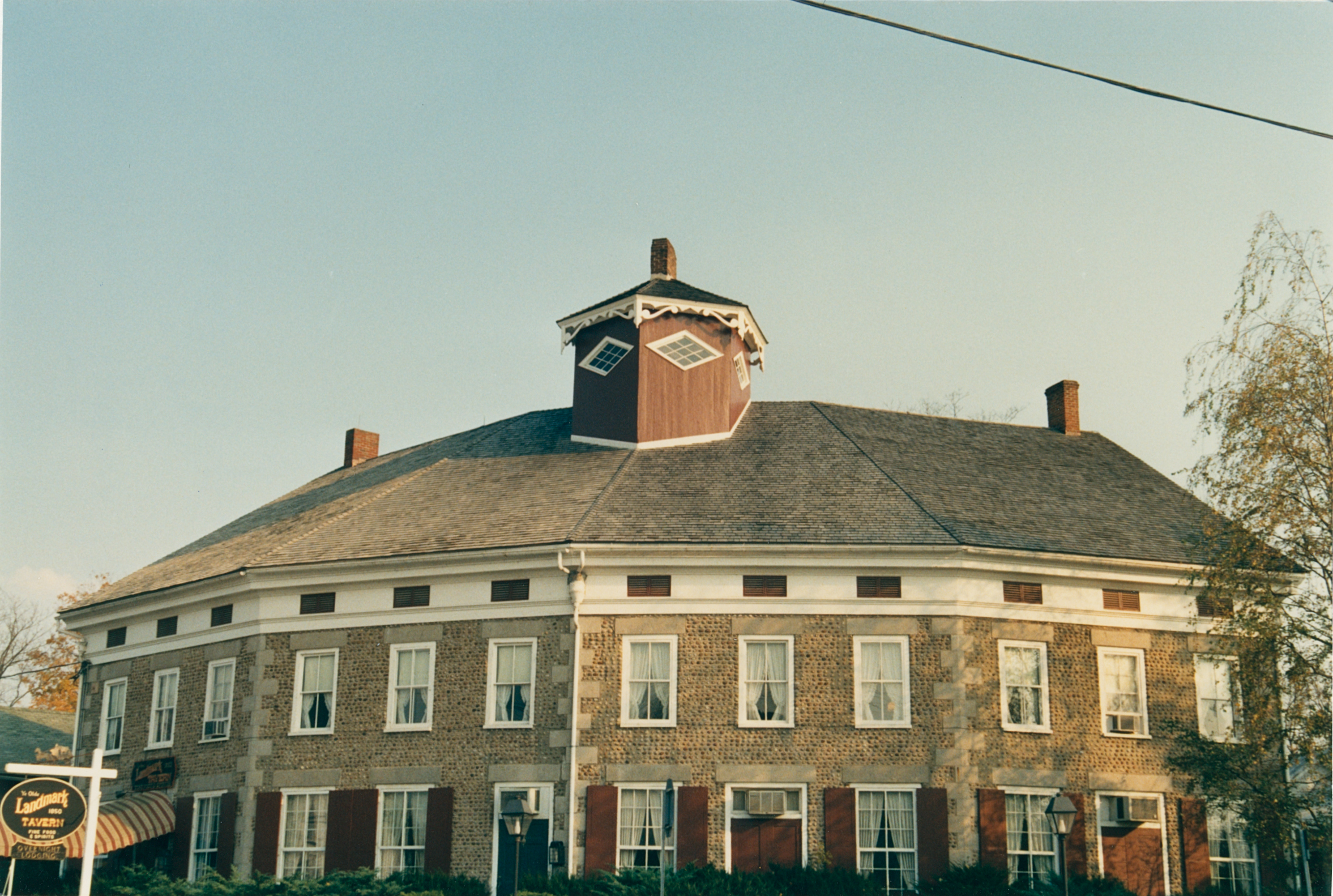 Mad-3 6722 Rt 20 3.jpg 7 | 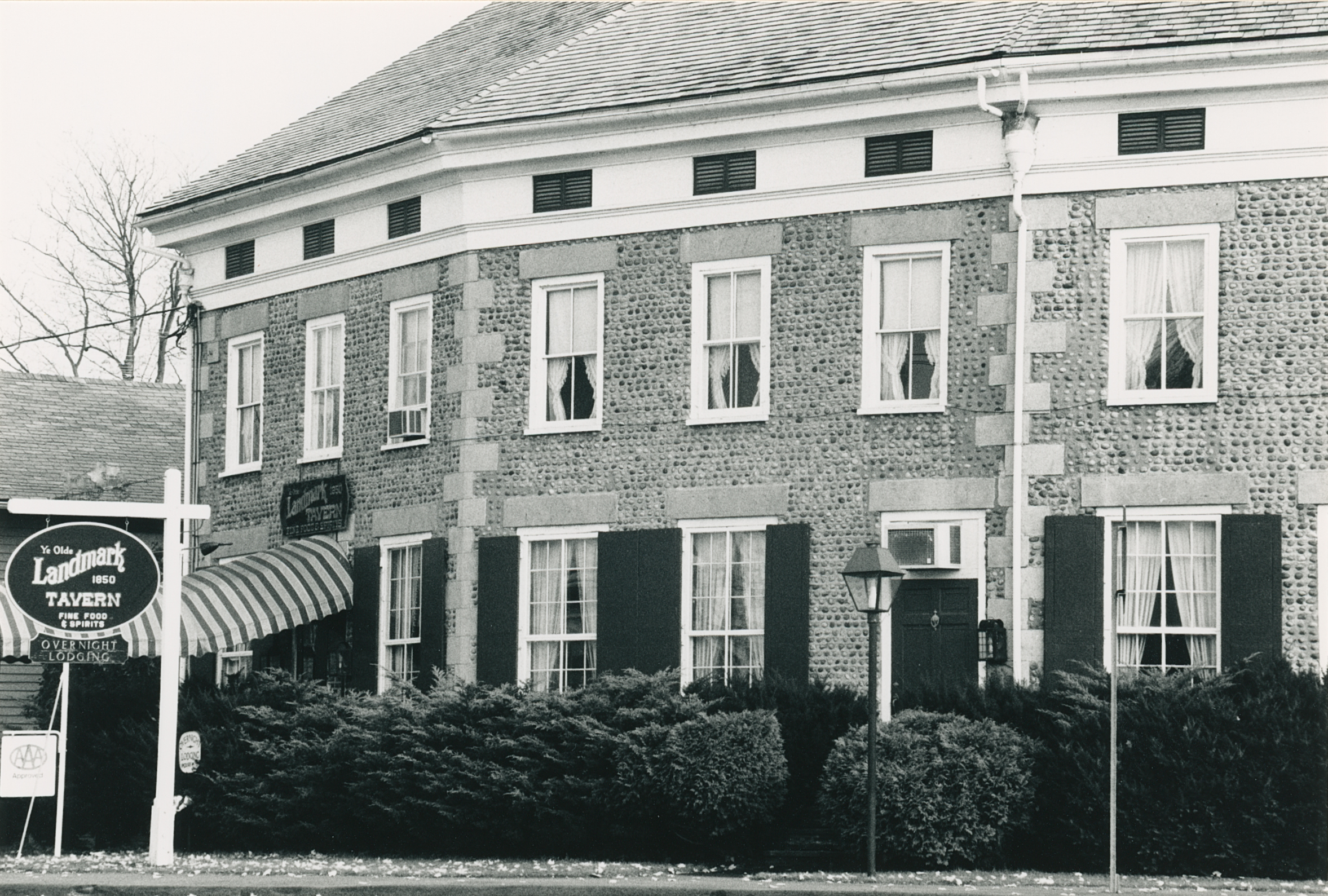 Mad-3 6722 Rt 20 4.jpg 7 | 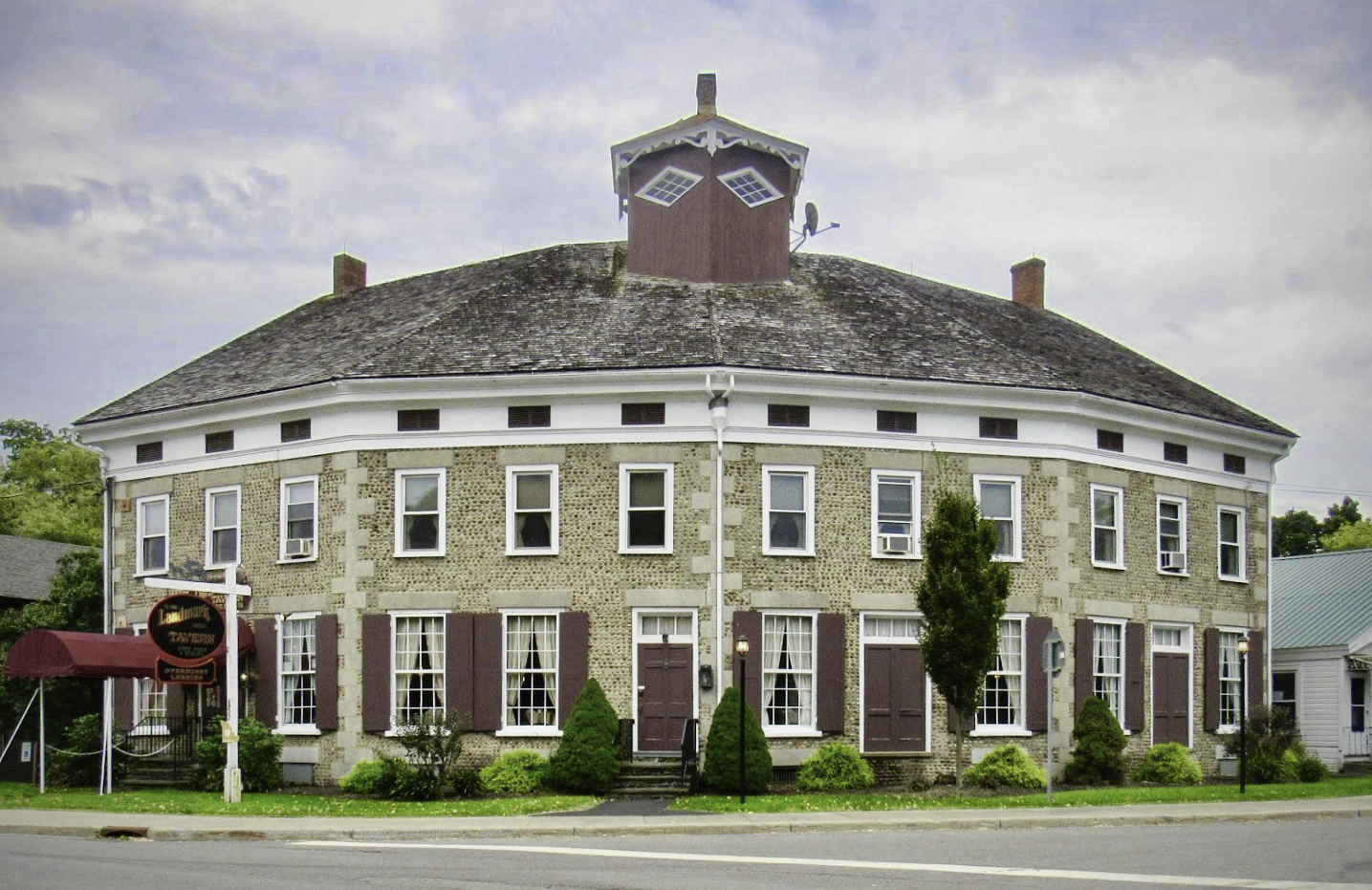 Cobblestone+Tavern+1 2.jpg 8 |
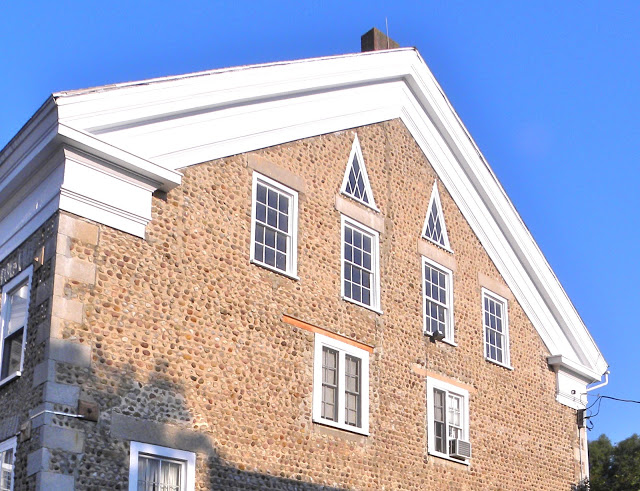 Landmark Tavern 2.jpg 8 View of east wall. |
¹ Image courtesy Richard Palmer.
² Image courtesy Dave Porter, image collector, Cazenovia, New York.
³ Photography courtesy Charles Hopkins from the Cobblestone Museum archives.
4 Image courtesy Cobblestone Museum
5 Photography courtesy John Vrooman, from the archives of the Cobblestone Museum. The photo might have been taken in 1947 for a NYS Department of Education project that documented historic structures and sites as selected by local historians. Holly Watson, Deputy Livingston County Historian, email 11/30/2020.
6 Photography courtesy Gerda Peterich. Cobblestone Museum.
7 Photography courtesy Martin and Sheila Wolfish.
8 Photography courtesy Richard Palmer.

 National Register of Historic Places Registration
National Register of Historic Places Registration